Cutting Off and Discontinuing Alcohol Service–a Guide

The decision not to serve a customer who is apparently under the influence could not only save a liquor license, but it could also save someone’s life. Knowing the signs of intoxication is a must for licensees and their employees. It is illegal to serve or sell alcohol to anyone who appears to be intoxicated or “apparently under the influence” (RCW 66.44.200).
What are the common signs of intoxication?
Lack of physical coordination
- Spilling drinks
- Loss of muscle control
- Missing mouth when raising the glass to drink
- Inability to focus — squinting
Carelessness or clumsiness with money, credit cards, keys or electronic devices
- Dropping or fumbling with personal items
- Trouble picking up money or getting their wallet out
- Dexterity problems with cell phone
Unsteady walking
- Watch for customers who are bumping into furniture or other customers
- Staggering when walking to and from the restrooms
- Swaying while standing
Behavior changes
- Becoming loud with customers or their phone
- Inconsiderate of others while on their cell phone
- Becoming aggressive or annoying with other customers
- Swearing
- Complaining about service quality or price of drinks
- Becoming overly friendly
- Buying rounds of drinks for strangers
- Losing concentration and train of thought
- Avoiding eye contact
- Bobbing head or eyelids drooping
- Relaxed inhibitions
- Impaired judgment
- Slowed reaction time or deliberate movements
- Disorderly behavior
Speech patterns
- Slurred words
- Loud talking
- Fumbling over words
- Incoherent train of thought

Other Considerations
If a customer appears to explain a warning sign for possible intoxication, such as unsteady walking because of leg braces, look for additional signs that may signal intoxication. Since some characteristics of certain disabilities may mimic signs of intoxication, only through diligent communication can you assure that individuals with disabilities are treated fairly. Do not be afraid to ask questions.
DUI Place of Last Drink Program
In Washington State, law enforcement captures data from the DUI processing questionnaire regarding the place a DUI suspect may have consumed their last drink. LCB gets this data monthly from Washington State Patrol. Be aware that if a person involved in a DUI traffic stop identifies your business as their place of last drink, it may affect your license. It benefits licensees to help identify intoxication and eliminate over-service situations to prevent dangerous situations on our roads.
Alternate Transportation
It is much easier in the common era to arrange alternative transportation. If a guest has been drinking somewhere else, or has mixed their alcohol with other intoxicating substances, you can inadvertently find yourself with a drunk guest, who is not safe to drive. That is why Mandatory Alcohol Server Training has been enacted in Washington State. It aims to educate the folks actually serving the alcohol. Servers with their MAST cards, their MAST permits, understand their important role in keeping their communities safe. There is a ripple effect from establishment, to server, to community.
Thankfully, you have choices if a guest has become too intoxicated to safely drive. If they become upset at this –they have already been drinking too much.
- Call them an Lyft or uber
- Call a friend or family member
Also, please remember, if they get upset that day, when they return for their vehicle, they will be very thankful. Some servers have even been given flowers the next day by a grateful guest who has impaired judgment. That is, they were too drunk to know they were too drunk to drive
In Closing
Remember, alcohol affects everyone differently. A person’s level of intoxication may depend on how fast the person is drinking, the amount of food consumed, and other factors. Trust your judgement and lean on other servers or managers if you are uncertain. When in doubt, do not serve. Overserving someone showing signs of intoxication can be detrimental to both the business and public safety.
You’re not in this alone. There are resources available on the LCB website, and licensees are encouraged to contact and talk to their local LCB Enforcement Officer, who can provide education and offer over-service training to licensees and staff upon request.
